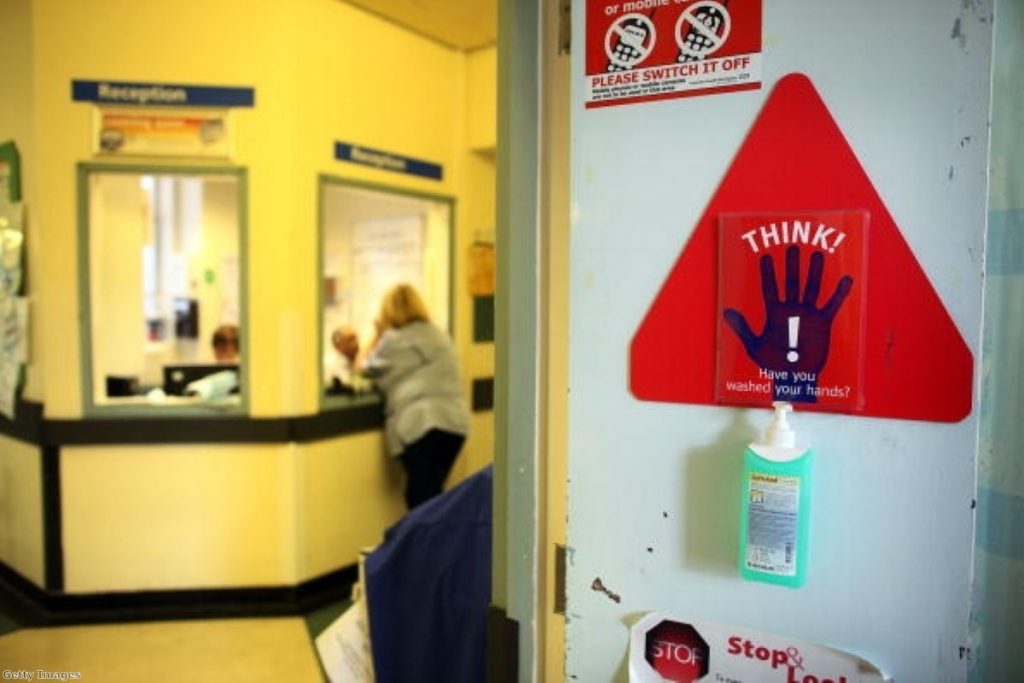It’s official: No-one knows who is in charge of the NHS
Relations with the Department of Health and NHS England, a report out today states, are "extremely complicated and still evolving". This is another way of saying 'we have no idea who is actually in charge'.
It's a troubling conclusion, but that is the chief finding from a report out today from the cross-party group of MPs whose task it is to keep an eye on the way ministers do the actual governing.
When it comes to the NHS, the fear was always that the coalition's NHS reforms would strip accountability away from the politicians.
During the passage of what became the Health and Social Care Act through parliament, a mighty stink was kicked up by protesters warning that the secretary of state for health would cease having real responsibility for the NHS.
This was instead going to pass to NHS England, the body which holds 211 clinical commissioning groups to account for their performance.
After the 'pause', the government appeared to back down. It was made explicit that the health secretary would be responsible for promoting a comprehensive health service. The Department of Health's guidance notes added: "The changes clarify that the secretary of state will retain accountability for securing the provision of services, though rather than securing services directly, the secretary of state will do this in future by exercising his functions in relation to the NHS bodies."
It is that relationship which, two-and-a-half years down the line, is now being called into question by the Commons' public administration select committee.
They are bewildered by what they see. Across government the relationship between the central departments and the semi-independent quangos is inconsistent and confusing. As civil society minister Nick Hurd has admitted, "the system is full of anachronisms and anomalies". The Institute for Government thinks there are 11 types of public body.
It is such a mess that the committee chair, Bernard Jenkin, has ventured to compare it to nothing less than the complex creation of the Wachowski Brothers:
"Vast amounts of money are involved here, £95.6 billion in the case of NHS England alone, and it is simply not acceptable that there is no clarity or clear accountability for that kind of public expenditure… The architecture is not meant to be reminiscent of the film The Matrix where doors open on virtual worlds which are insulated from reality and hidden from the public and from those meant to be accountable for them."
Jenkin's committee's report, published today, contains a long list of examples of the problems arm's-length government brings. But none of them are as important as that of NHS England's relationship with the Department of Health.
Since April 2011, when it assumed full statutory powers, this public body has overall responsibility for the system for commissioning healthcare. It has day-to-day responsibility for running the NHS, while the DoH is left "overseeing the running of the NHS". That there might be a little overlap between these two is stating the obvious.
The more you drill down into the detail, the more confusing it gets. What are we to make of the monthly meetings between the DoH's senior departmental sponsor and NHS England's director of commissioning strategy? How much weight should we put on Jeremy Hunt's two-yearly meeting with the chair of NHS England, or the publicly-held board meetings?
Hunt, it's clear, remains politically accountable. Any big problems in the NHS will result in him being hauled to the despatch box in the Commons to explain himself. But his ability to monitor the commissioning of services is not yet settled. MPs think this goes well beyond teething problems. Here's the full, damning quote from their report:
"There is no excuse for a lack of a clear understanding of statuses, roles and relationships. It is not acceptable that the Department of Health took more than two years to update its 'accountability system statement'. This left accountability relationships unclear during a period of major organisational change. NHS England is now the largest arm's-length body. Its accountability should not be in any doubt, but the current arrangements for it are extremely complicated and still evolving."
When you find a politician grasping for metaphors in The Matrix, you know something is very wrong. MPs are frustrated because they just want to know who's in charge. Is that such a big ask?






-01.png)